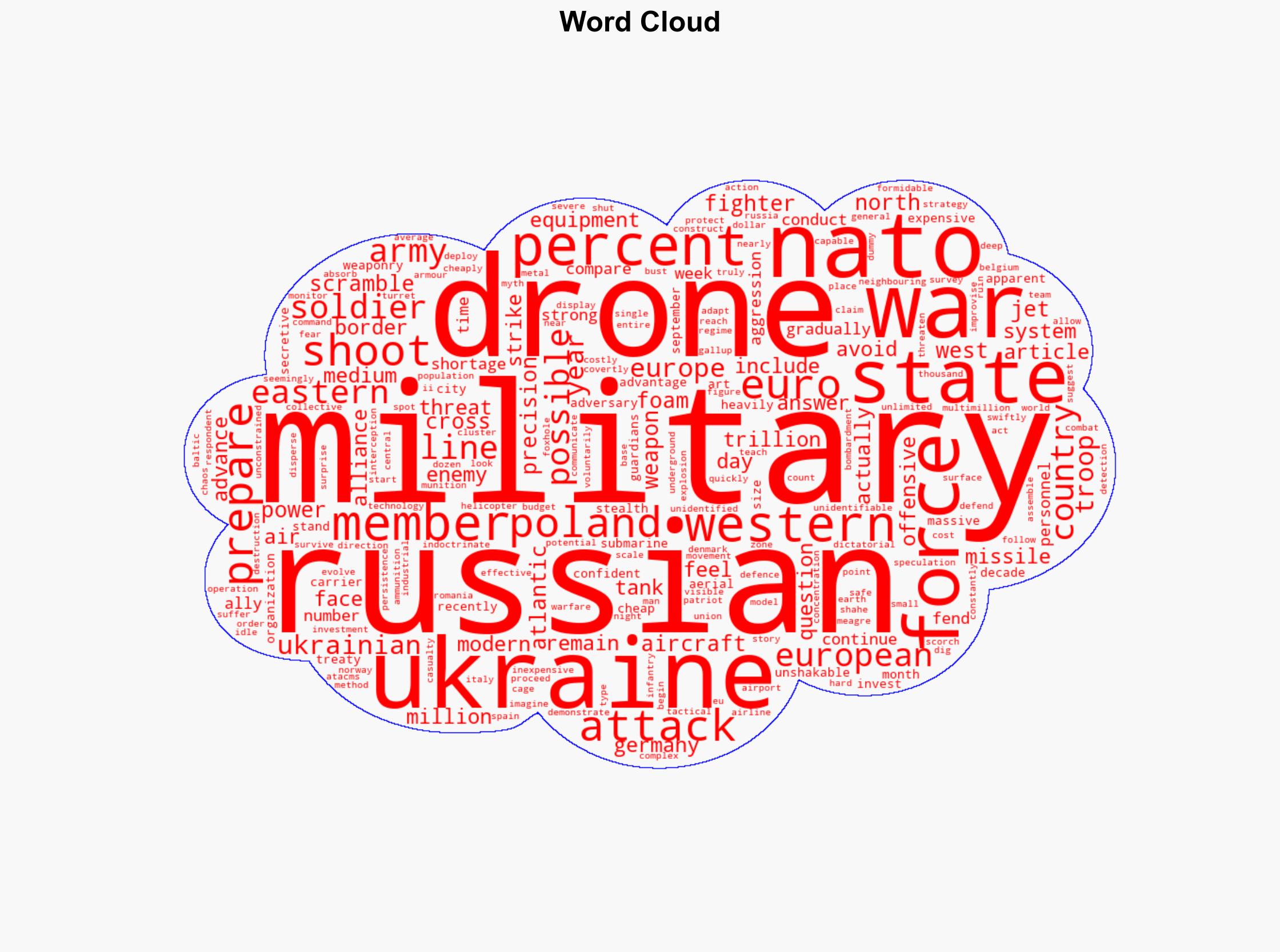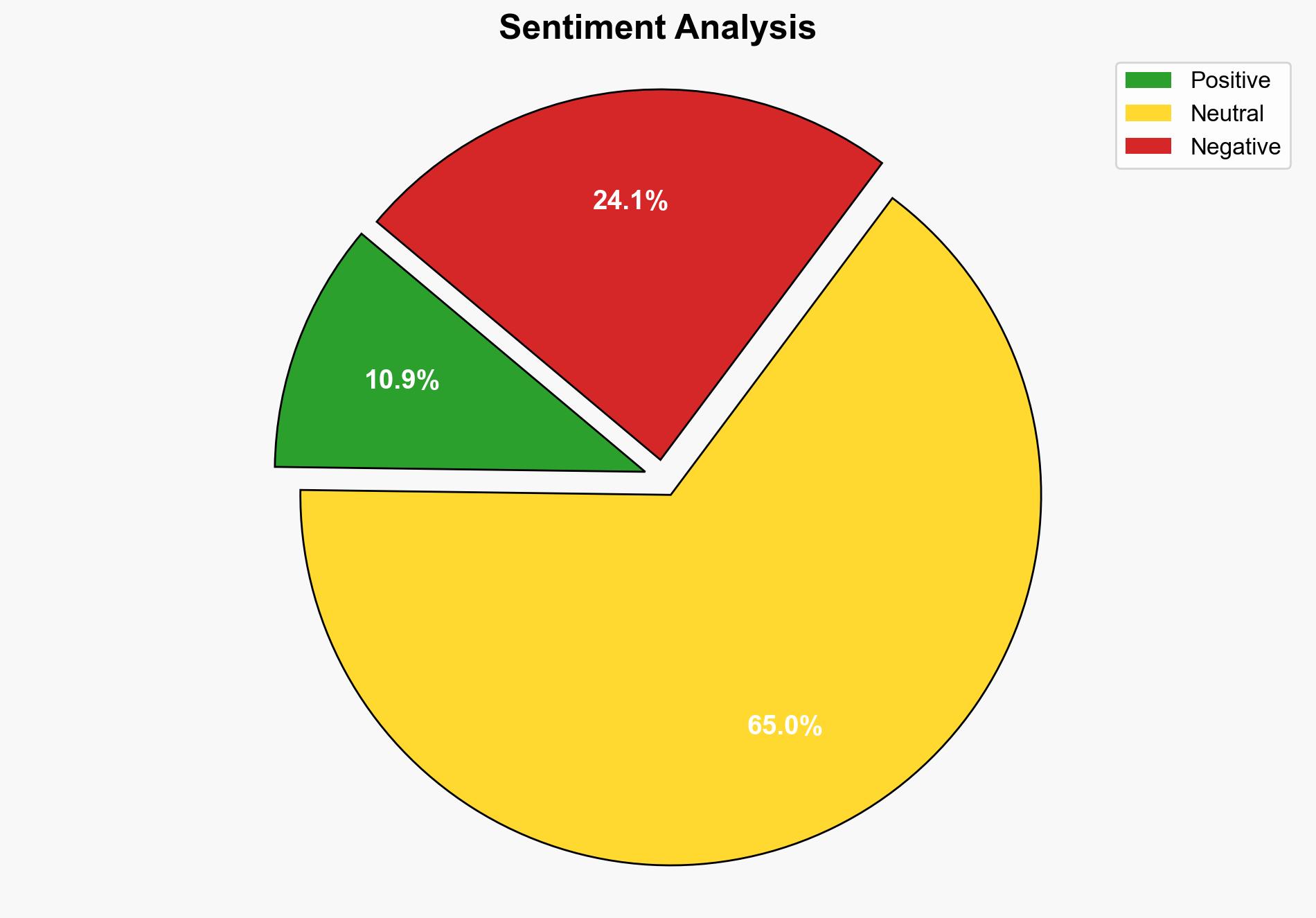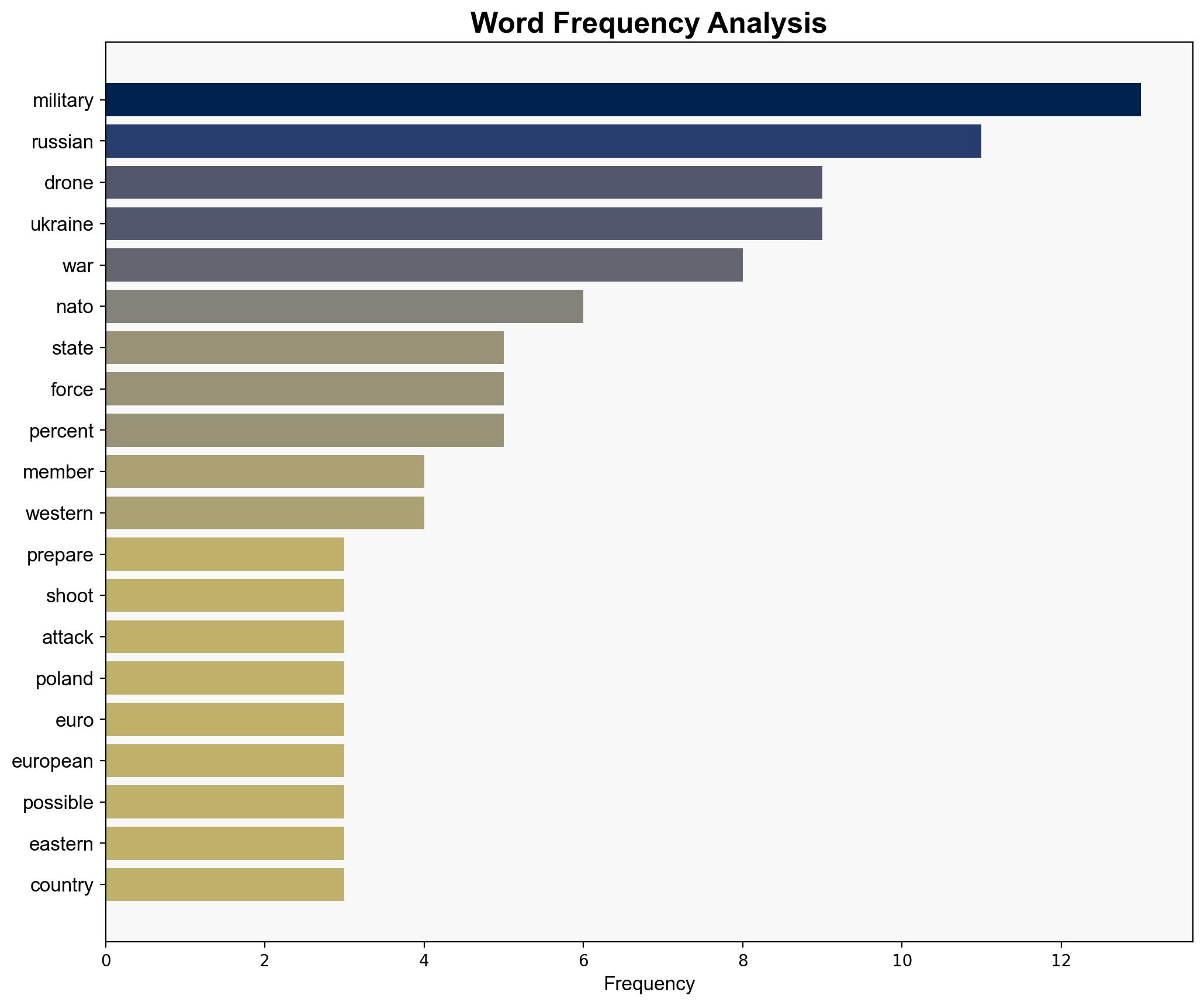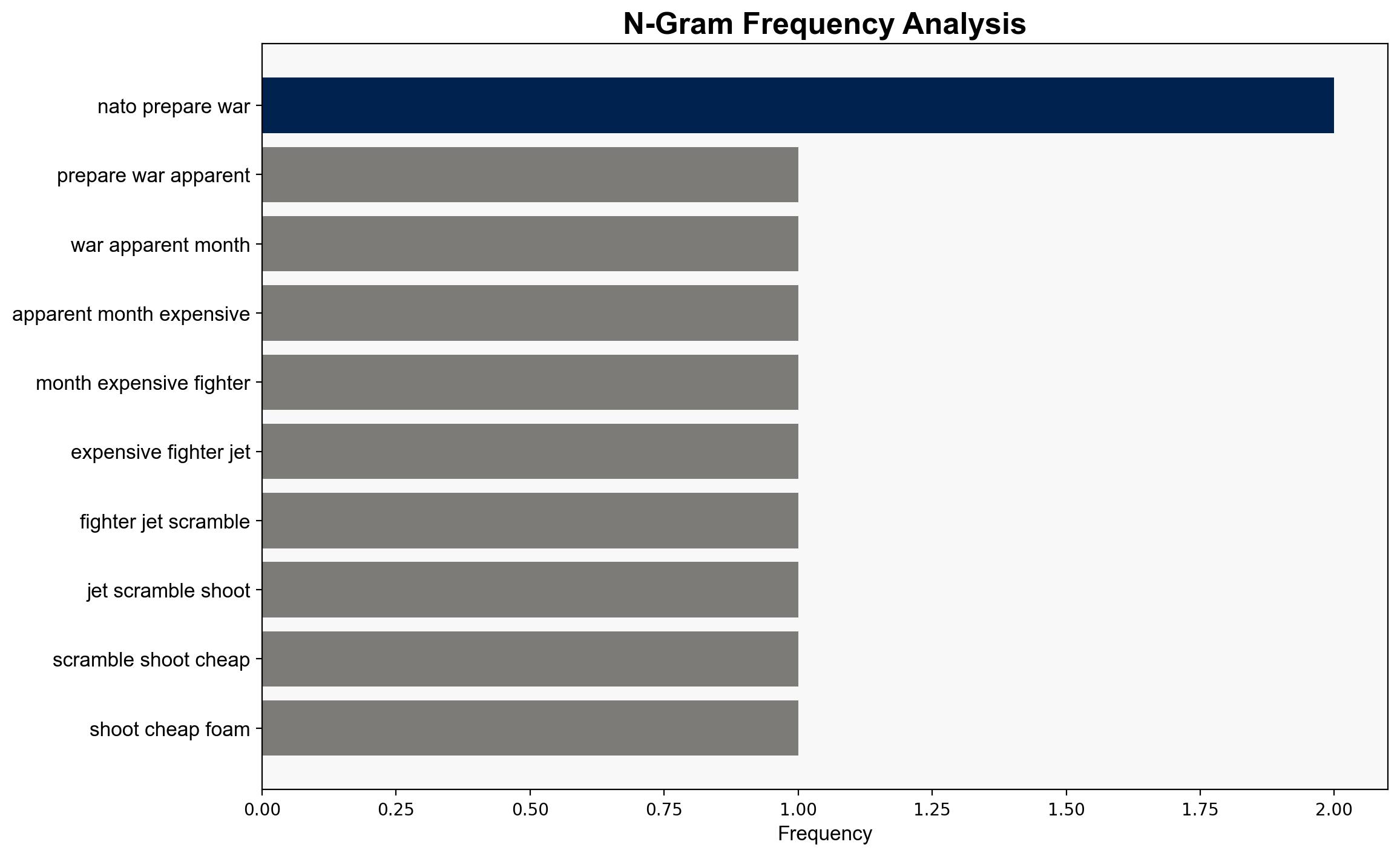NATO is not prepared for war – Al Jazeera English
Published on: 2025-10-12
Intelligence Report: NATO is not prepared for war – Al Jazeera English
1. BLUF (Bottom Line Up Front)
NATO’s preparedness for a large-scale conflict is being questioned due to the high cost of its military responses to low-cost threats, such as drones. The most supported hypothesis suggests that NATO’s current military strategy and investments may not be optimized for asymmetric warfare. Confidence level: Moderate. Recommended action: NATO should reassess its defense strategies to better address asymmetric threats and enhance cost-effective responses.
2. Competing Hypotheses
1. **NATO is unprepared for modern warfare due to over-reliance on expensive military assets.** This hypothesis suggests that NATO’s focus on high-cost, high-tech weaponry leaves it vulnerable to low-cost, asymmetric threats like drones, which can bypass traditional defenses.
2. **NATO’s current strategy is effective, but public perception and isolated incidents create a false narrative of unpreparedness.** This hypothesis posits that while NATO faces challenges, its overall strategy remains sound, and recent incidents are not indicative of systemic issues.
Using ACH 2.0, the first hypothesis is better supported due to multiple instances of costly responses to inexpensive threats, highlighting a potential strategic gap.
3. Key Assumptions and Red Flags
– **Assumptions**: The first hypothesis assumes that NATO’s military investments are not adaptable to asymmetric threats. The second assumes that public perception is skewed by isolated events.
– **Red Flags**: The reliance on expensive military technology without adaptive strategies for low-cost threats. Potential bias in media portrayal of NATO’s capabilities.
– **Blind Spots**: Lack of detailed analysis on NATO’s internal assessments and strategic adjustments post-incident.
4. Implications and Strategic Risks
– **Economic**: High costs of military responses could strain member states’ budgets.
– **Cyber**: Increased reliance on technology may expose vulnerabilities to cyber threats.
– **Geopolitical**: Perceived unpreparedness could embolden adversaries.
– **Psychological**: Public confidence in NATO’s defense capabilities may erode, affecting morale and support.
5. Recommendations and Outlook
- Conduct a comprehensive review of NATO’s defense strategies to incorporate cost-effective measures against asymmetric threats.
- Enhance intelligence-sharing and rapid response capabilities among member states.
- Scenario Projections:
- Best: NATO adapts quickly, improving defense against asymmetric threats.
- Worst: Continued high-cost responses lead to budgetary constraints and weakened defense posture.
- Most Likely: Incremental improvements in strategy, but challenges persist.
6. Key Individuals and Entities
– NATO member states
– Russian military forces
– European Union defense entities
7. Thematic Tags
national security threats, cybersecurity, asymmetric warfare, military strategy, geopolitical stability





